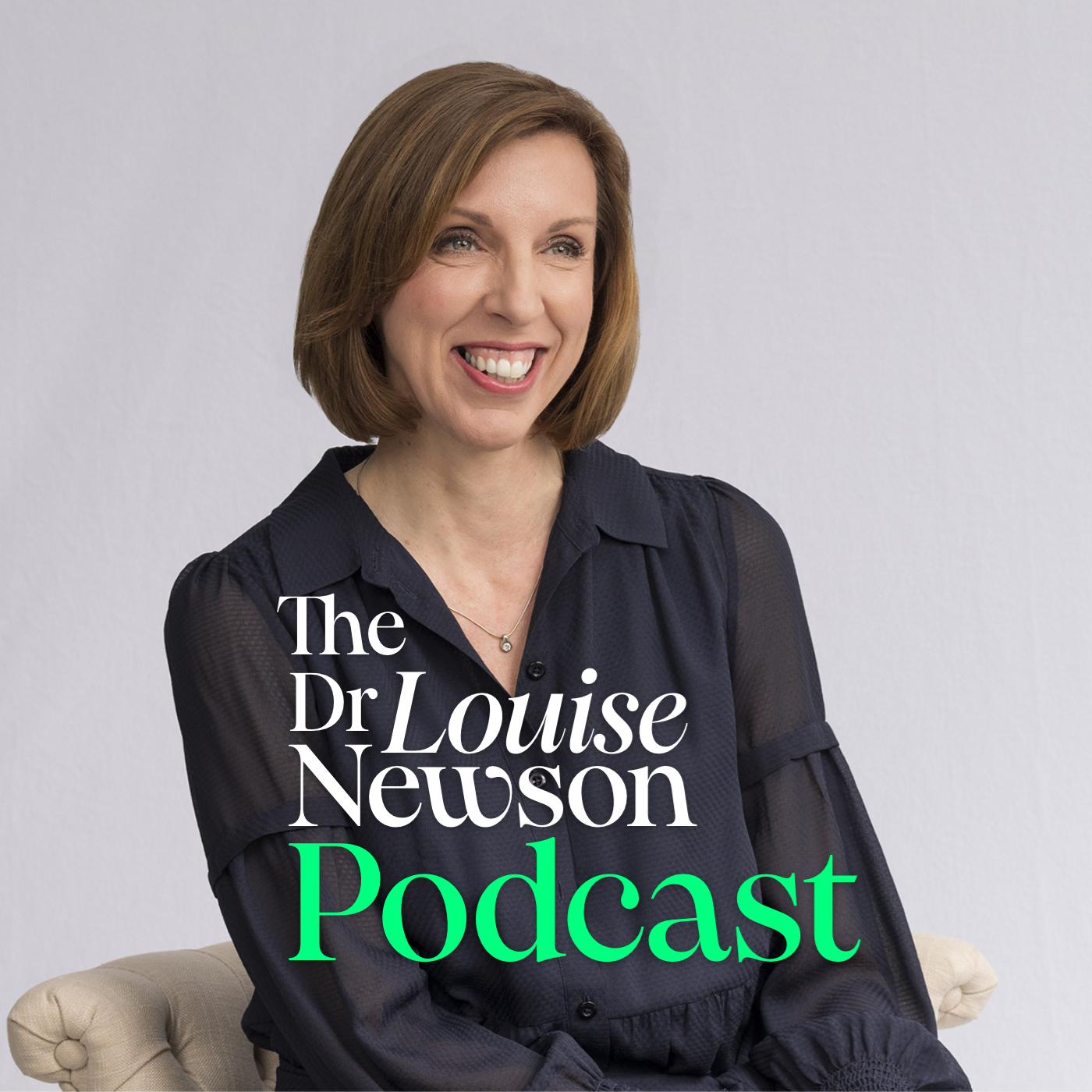
8.5M
Downloads
311
Episodes
Dr Louise Newson is an award-winning physician, respected women’s hormone specialist, educator, and author committed to increasing awareness and knowledge of perimenopause, menopause, and lifelong hormone health. Each week, Louise dives into the newest research, treatments and hot topic issues, providing accessible, evidence-based information to empower your future health. Joined by fellow experts and special guests, with answers to your burning questions, Louise explores how hormones impact every aspect of our lives. Described as the “medic who kickstarted the menopause revolution”, Louise aims to empower a generation of women to have a greater understanding, choice and control over their treatment, bodies, minds and future health through their hormones. She is the creator of the award-winning free balance app, a Sunday Times bestselling author and the founder of the Newson Health clinic. With over three decades of clinical experience, Louise is a member of the Royal College of Physicians, a Fellow of the Royal College of GPs, a Visiting Fellow at Cambridge, a regular contributor to academic journals including the Lancet and the British Journal of General Practice, and has been awarded an honorary Doctorate of Health from Bradford University. DISCLAIMER: The information provided in this podcast is for informational purposes only and is not intended as a substitute for professional medical advice, diagnosis, or treatment. Always seek the advice of your physician or other qualified health providers with any questions you may have regarding a medical condition. The views expressed by guests are their own and do not necessarily reflect the views of Dr Louise Newson or the Newson Health Group.
Episodes

Tuesday Jul 26, 2022
162 - Divorce, perimenopause and menopause with Farhana Shahzady
Tuesday Jul 26, 2022
Tuesday Jul 26, 2022
Farhana is an accredited family law specialist and mediator working with Family Law Partners in London. During her 20-year career, Farhana often noticed an unspoken element at play when helping women through divorce, but it wasn’t until she identified perimenopause within her peer group and those close to her that she appreciated the extent of the problem and was able to professionally decipher the impact of menopause on relationship breakdown. Farhana launched the Family Law Menopause Project to see whether any other colleagues in family law were factoring in this important element and to raise awareness of perimenopause and menopause when it comes to family cases dealing with divorce, splitting the assets, children issues or domestic abuse.
Farhana’s tips for family lawyers:
- Listen, enquire, and communicate. Look for cues and don’t be afraid to ask questions
- If you think a client is experiencing peri/menopausal symptoms affecting their relationships and wellbeing, invite them to see their doctor
- Factor the menopause into your cases. Pick a family process that suits the client, for example arbitration or mediation, and be sympathetic.
Visit Farhana’s family law practice at www.familylawpartners.co.uk
Follow Farhana on Twitter at @ShahzadyLaw @LawMenopause or lawmenopause on Instagram
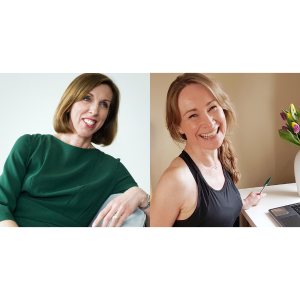
Tuesday Jul 19, 2022
161 - Jill’s experience of heart attacks and hormones
Tuesday Jul 19, 2022
Tuesday Jul 19, 2022
Until a few years ago, Jill was in denial about her age, the menopause and what that meant for her future health. She had worked for 30 years as a fitness instructor and sports massage therapist; she was incredibly fit and had never given her heart health a moment’s thought. This abruptly changed in 2021 when Jill had sudden and severe pains in her chest and after some doubt and misdiagnoses by the medical team in A and E, she was found to have had at least one significant heart attack, possibly more. Since then, Jill has had ongoing intermittent chest pain, especially when having hot flushes, and she realised her continued cardiac symptoms were potentially linked to her changing hormones.
Dr Louise Newson explains the link with estrogen deficiency and cardiac symptoms, and the increased risk of heart attacks after menopause. Together they discuss gender bias in heart research, the difficulties diagnosing heart attacks in women, the possible reasons for poorer outcomes compared to men and the cardiovascular benefits of HRT.
Jill’s 3 tips to women if worried about your heart:
- Listen to your body, you know it best
- Do your own research, such as balance-menopause.com, Blood Pressure UK, British Heart Foundation websites
- Have someone with you at appointments, or over the phone if not in person
- If you know there’s something wrong with your heart, ask for a troponin blood test
You can read Jill’s story here

Tuesday Jul 12, 2022
160 - Thinking hormones in psychiatric consultations with Dr Devika Patel
Tuesday Jul 12, 2022
Tuesday Jul 12, 2022
Dr Devika Patel joins Dr Louise Newson in this episode of the podcast to share how a chance encounter when overhearing an educational webinar on the menopause was a light bulb moment for her practice as a psychiatrist. Devika takes us through her journey of how this knowledge from learning about menopause has transformed the psychiatric care she now offers to her patients.
Devika’s 3 tips for those with mental health challenges who are in perimenopause/menopause:
- Don’t forget the important lifestyle changes (healthy diet, exercise, reduce stress, improve sleep and have meaningful connections with others) apply to mental health just as they do with menopause.
- When seeking help, go with your own data to your healthcare appointment. Track your moods with your cycle and really make any links clear to your clinician.
- If you don’t feel your healthcare professional is the right match for you, see someone else and advocate for yourself.
Website/socials details – Instagram @drdevikapatel Twitter @drdevikapatel
Podcast: “Our Extraordinary Stories with Dr Devika Patel”
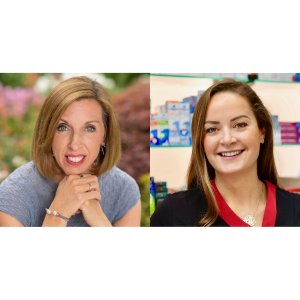
Tuesday Jul 05, 2022
Tuesday Jul 05, 2022
Victoria Jones is a community pharmacist at Bonnybrook Pharmacy in Coolock, Dublin. She received very little education on the menopause when training and became more interested in hormone health after her sister experienced severe symptoms at 40 and began taking HRT. The dramatic return of her sister’s health and wellbeing prompted Victoria to move away from running a chain of pharmacies to set up her own independent pharmacy with a focus on women’s health. When Victoria experienced her own perimenopause and she saw the profound benefits of HRT for herself, her passion escalated and Victoria now takes a very active role in raising awareness in her community with the public and local healthcare professionals, and in educating others through her social media.
Victoria’s advice to women:
- Ask your pharmacist if they’ve done any training on the menopause and if not, mention the resources available such as on balance website and the Confidence in the Menopause course on fourteenfish.com. Find the right pharmacist for you.
- Don’t be fobbed off by healthcare professionals, if you aren’t listened to the first time, go in more empowered with information the next time. Ask for a specific clinical reason why they will not prescribe HRT, and ask them to write it down for you.
- Your pharmacist can explain how and when to take your HRT medication if your doctor wasn’t sure, or you didn’t have time to discuss thing fully.
- Your pharmacist can also help with information on improving health through lifestyle measures such as nutrition and exercise.
Victoria’s pharmacy website is www.BonnybrookPharmacy.ie
Follow Victoria on Instagram and Facebook @The_menopause_pharmacist
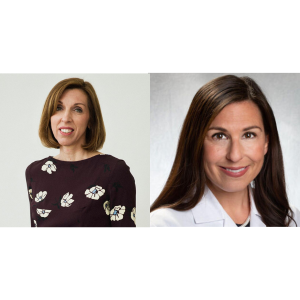
Tuesday Jun 28, 2022
Tuesday Jun 28, 2022
Dr Heather Hirsch makes a welcomed return to the podcast this week. Heather is an internal medicine physician, specialising in women’s health and menopause care at the Brigham and Women’s Hospital in Boston Massachusetts, USA. Her clinical work and research centres on inequalities or unanswered questions in the field of women’s health, specifically in menopause education.
In this episode the menopause experts discuss the bigger picture of menopause care as a gender issue, women’s role in society and in the workplace, perceptions of women’s suffering and the menopause as a medical specialty. Louise and Heather share the challenges they each continue to face to educate and inform the public and healthcare professionals on the perimenopause and menopause and the benefits and safety of HRT.
Heather’s 3 tips:
- Know what’s going on in your body by keeping a journal and tracking your symptoms. I recommend the free balance app to my patients for this.
- List your own priorities and what matters most to you, whether that is your sexual health, your hair or skin, your sleep and so on.
- Understand the three strands of menopause management: lifestyle changes, non-hormonal treatments and HRT, and know the pros and cons for all to realise what choices are best for you.
Follow Heather at:
Instagram @hormone.health.doc
Website: heatherhirschmd.com
YouTube: Health by Heather Hirsch
Podcast: Women’s Health by Heather Hirsch
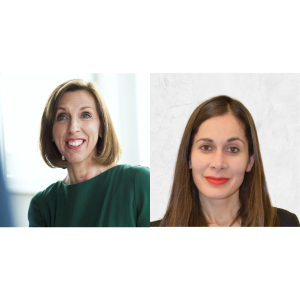
Tuesday Jun 21, 2022
157 - Science based weight reduction that lasts with Dr Saira Hameed
Tuesday Jun 21, 2022
Tuesday Jun 21, 2022
Dr Saira Hameed is a consultant endocrinologist working at the Imperial Weight Centre and at Imperial College London. Her work focusses on researching the drivers for appetite, obesity, and regulation of body weight to develop science-based interventions that help people manage their weight and lead healthier lives.
In this episode the experts discuss the impact of obesity on individuals’ health, on the NHS and wider society, and the science behind sugar, fats, and processed foods. Dr Hameed’s book, ‘The Full Diet’, explains the weight loss programme that is used in the NHS by clinicians and patients and was developed and trialled at Imperial College.
Saira’s 3 tips:
- Short term – do everything you can to remove ultra-processed foods from your environment
- Medium term – look at all the factors that contribute to your weight such as your stress levels, sleep, activity levels and seek to address those too
- Longer term – be your own biggest fan. Feeling good about yourself will have a positive ripple effect on other areas of your life.
‘The Full Diet’ book is available now and published by Michael Joseph.
Find her on her social channels on Instagram https://www.instagram.com/drsairahameed/ and Facebook https://www.facebook.com/thefulldietbook
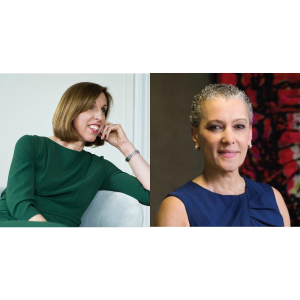
Tuesday Jun 14, 2022
Tuesday Jun 14, 2022
Dr Sharon Malone is an eminent American physician who has worked as an obstetrician and gynaecologist for over 30 years in Washington DC. After 15 years of working mostly as an obstetrician, Sharon changed to specialise in menopause care around the time of her own perimenopause. She is passionate about educating women to understand their own hormone journey and empower them with evidence based information about hormone treatments.
The experts discuss the challenges of influencing and persuading medical colleagues on the benefits of hormone replacement, the importance of patient choice and agency, and the lack of menopause research and need for government funding.
Dr Malone’s advice to women:
- Find your community of women who will support you and understand what you’re going through
- Be active, keep exercising regularly
- Maintain a healthy diet and eating habits; processed foods negatively affect so many aspects of your health
To read or listen to Dr Malone’s Washington Post op ed, visit https://www.washingtonpost.com/opinions/2022/04/28/menopause-hormone-therapy-nih-went-wrong/
Dr Malone is the Chief Medical Officer at US based menopause company Alloy, to find out more visit www.myalloy.com
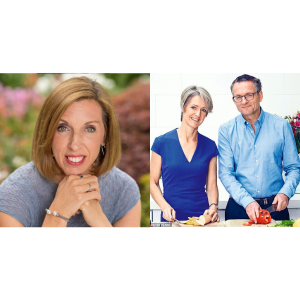
Tuesday Jun 07, 2022
Tuesday Jun 07, 2022
Dr Clare Bailey is a GP and health columnist with extensive experience in helping people lose weight and improve their health. Dr Michael Mosley is a science presenter, journalist and executive television producer. Together, they have authored several bestselling books on weight loss, diet and diabetes and created the popular 5:2 and fast 800 diets.
In this episode, the guests describe the evidence showing the positive effects of incorporating principles such as the Mediterranean style diet and time-restricted eating into your lifestyle and how the fast 800 diet can dramatically improve your health outcomes, particularly in reversing type 2 diabetes. The ‘metabolic car crash’ of poor sleep, low hormones, poor diet and weight gain for women during the perimenopause and menopause are also discussed.
Clare and Michel’s top tips:
- Enjoy olive oil. You don’t have to be stingy with it – it’s good for you!
- Eat oily fish – remember SMASH: Sardines, Mackerel, Anchovies, Salmon, Herring.
- Avoid snacks (especially in the evenings) or if you have to, reach for a few nuts.
For more information on Clare and Michael’s diet books and the fast 800 diet, visit thefast800.com
Follow Clare’s recipes on Instagram @drclarebailey
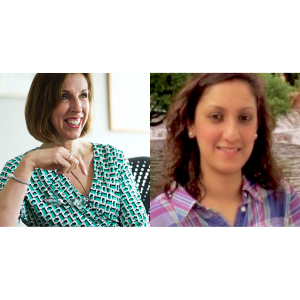
Tuesday May 31, 2022
Tuesday May 31, 2022
Rupa Lyall is a clinical pharmacist who works in a GP practice in Buckinghamshire seeing patients with minor illnesses and prescribing medications. In this episode she tells Dr Louise Newson how she became interested in the perimenopause and menopause and how, through the training on fourteenfish.com and resources on the balance website, Rupa now supports and educates other clinicians in HRT prescribing.
Their conversation covers raising awareness among professionals, working with patients from BAME communities, the importance of empowering women to improve their quality of life and the transformational effects of hormone replacement.
Rupa’s 3 tips for pharmacists interested in the menopause:
- Go to fourteenfish.com and do the ‘Confidence in the Menopause’ course
- Don’t be frightened of the menopause, learn more and talk to others
- Speak to patients about their HRT, ask them how they’re doing, especially in the community. You will learn a lot by doing this.
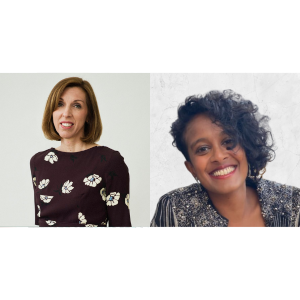
Tuesday May 24, 2022
153 - Learning how to prescribe HRT as a GP trainee with Dr Thulasi Naveenan
Tuesday May 24, 2022
Tuesday May 24, 2022
In this episode, Dr Thulasi Naveenan talks to Dr Louise Newson about her experiences as a 3rd year GP trainee working in a central Manchester practice and learning on the job when it comes to HRT prescribing. The conversation covers working with patients from different cultures and with interpreters or family members, challenging misinformation, health risks after menopause and gender differences, and introducing the topic of hormones at 40-year health checks. Thulasi gives an honest and reflective account of what she has learnt about women’s health and hormones in her last 7 years of practising as a doctor.
Thulasi’s advice to clinicians learning about menopause:
- Always have hormones in the back of your mind and there is no younger age limit cut off. Don’t be afraid to ask patients about their periods, vaginas and symptoms.
- Don’t be afraid to ask about what you don’t know, use resources like the balance app and NHMS to find out more information. Find your local expert and seek out their knowledge and experience.
- If you’re ‘junior’, don’t be afraid to challenge more senior clinicians – they may not be as up-to-date on the latest practice.
You can follow Dr Thulasi Naveenan on Instagram at @tnaveenan and on Twitter at @ThulasiNaveenan
Since the recording of this podcast, there has been further discussions with Cancer Research UK.
